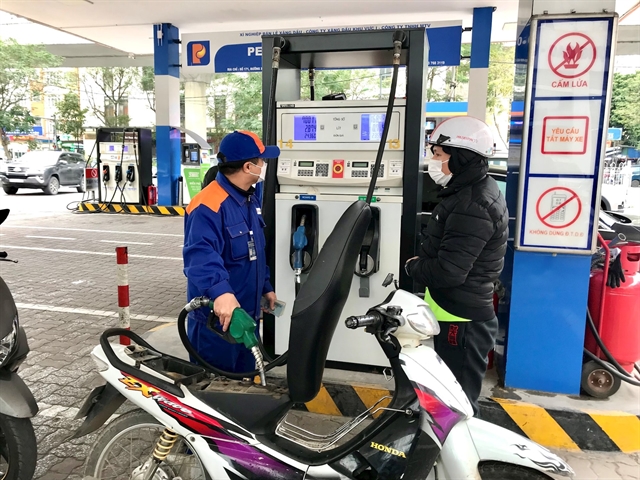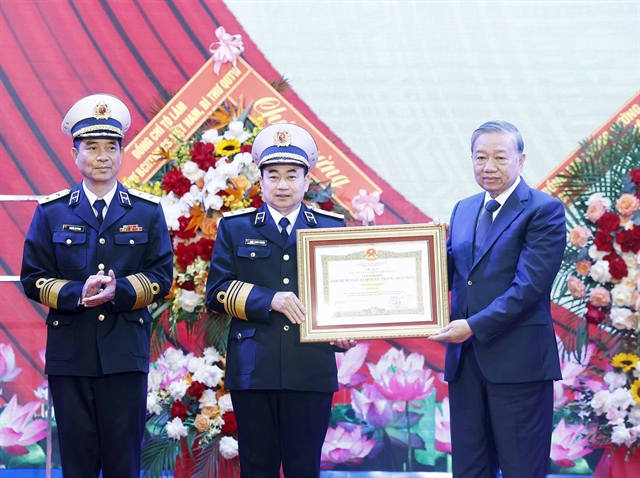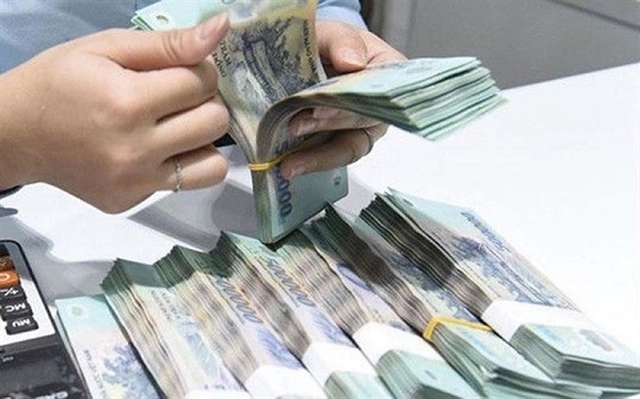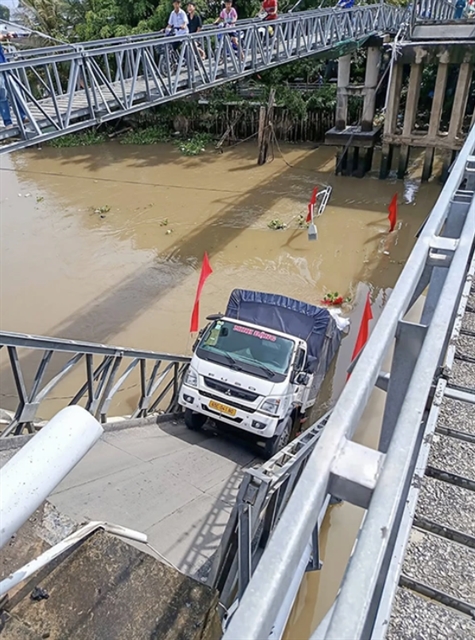 Economy
Economy


|
| Delegates at the discussion session on Thursday's morning. — VNS Photo Ly Ly Cao |
Ly Ly Cao
HÀ NỘI — Việt Nam is seeing rapid growth in its crypto market, positioning itself as a rising hub in the digital finance ecosystem with the launch of a pilot regulatory framework for tokenised assets, a move that experts say could reshape capital markets and accelerate economic growth.
Speaking at the forum titled 'Digital Asset Market: From Trends to Breakthroughs,' part of the National Innovation Day on October 2, policymakers and industry leaders highlighted the country’s swift embrace of digital assets.
According to the Ministry of Finance, Việt Nam recorded more than US$220 billion in digital asset inflows in 2025, a surge of 55 per cent year-on-year.
"The world is entering the era of tokenisation," said Phan Đức Trung, chairman of the Vietnam Blockchain & Digital Asset Association (VBA) and 1Matrix.
"This is a breakthrough in financial innovation, comparable to the advent of mutual funds in the 1970s or exchange-traded funds in the 1990s. With proper legal frameworks, real-world asset (RWA) tokenisation could represent more than 10 per cent of global GDP by 2033, or about $19 trillion."
On September 9, the Government issued Resolution 05/2025/NQ-CP, a landmark pilot scheme establishing rules for the issuance and trading of tokenised assets in Việt Nam. Under the resolution, issuers must be Vietnamese legal entities and base tokens on real-world assets rather than securities or fiat currencies.
Licensed virtual asset service providers (VASPs) will face stringent requirements, including a minimum charter capital of VNĐ10 trillion, foreign ownership capped at 49 per cent and technology systems meeting Level 4 cybersecurity standards.
VASPs will also be obligated to segregate client assets, disclose information transparently and establish dispute resolution mechanisms.
"The framework not only opens the door for innovation but also acts as a filter, removing risky models and ensuring market transparency," said Tô Trần Hòa, deputy director of market development at the State Securities Commission.
"It will give investors confidence and align Việt Nam with international standards."
FATF grey list
Việt Nam’s regulatory push comes as it works to address vulnerabilities in anti-money laundering compliance. The country has been on the Financial Action Task Force (FATF) grey list since June 2023.
According to Nguyễn Thị Minh Thơ, deputy director of the Anti-Money Laundering Department at the State Bank of Vietnam (SBV), risks linked to crypto wallets, stablecoins and tokenised securities are rated "high to medium-high" in the national risk assessment.
"VASPs must implement enhanced anti-money laundering measures, including customer due diligence, monitoring transactions over $1,000, storing data for at least 10 years and reporting suspicious activity," Thơ said.
Colonel Nguyễn Thành Chung of the Ministry of Public Security’s cybercrime unit added that unregulated offshore exchanges are being exploited for fraud and illegal fundraising.
Between 2019 and 2024, authorities detected nearly 20,000 fraud cases causing damages of more than VNĐ12 trillion ($500 million), with most illicit funds converted into crypto assets through global platforms such as Binance and OKX.
"Licensed domestic exchanges are vital to protecting consumers and strengthening our defences against financial crime," Chung said.
Opportunities and global integration
Industry leaders argue that Việt Nam’s proactive approach could catalyse integration into global financial networks.
Tokenisation allows virtually any asset, from government bonds to real estate, commodities and even intellectual property, to be digitised and traded on blockchain.

|
| Phan Đức Trung, chairman of the Vietnam Blockchain & Digital Asset Association (VBA) and 1Matrix. — Photo courtesy of the organiser |
"Early pilots should focus on safe, transparent assets such as government bonds and treasury bills," Trung said.
"And international collaboration with institutions like BlackRock, Franklin Templeton, HSBC and JPMorgan will be key to applying global standards and attracting long-term capital."
Experts also highlighted the potential of the so-called 'on-chain economy flywheel,' a self-reinforcing growth cycle where blockchain-based transactions drive liquidity, innovation and economic expansion.
As David Chan, head of BCG's Financial Institutions practice in Hong Kong, said, tokenised assets are not a passing trend.
"They are becoming a global standard that is redefining financial market structures," he said.
Despite the optimism, challenges remain.
Tokenised asset markets face hurdles around legal enforcement, cross-border jurisdiction, liquidity and technical risks such as data oracles and custody of underlying assets.
Still, the consensus at the forum was clear: Việt Nam's experiment could accelerate its ambition of becoming a regional digital finance hub while supporting the Government’s vision of achieving double-digit economic growth as outlined in Resolution 57-NQ/TW.
"Policy must be protective yet flexible," said former chairman of the National Assembly’s Law Committee Professor Phan Trung Lý,. "Only then can tokenised assets move from potential to becoming a true driver of sustainable growth." — BIZHUB/VNS




